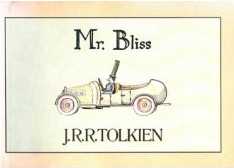Ingo - Helen Dunmore
A quick comment, before I review this book (just to give those who wish to avoid potential spoilers the chance to avert their eyes !). I was going to do a round up of my reading in 2005, but I don't really have time to compile it since I'm working this weekend (Saturday to Tuesday) on writing those 9000 words on Tolkien's life in Oxford to which I keep referring, so don't be surprised if I don't post much over the next few days ! But post-Deadline Day (ie. after Jan. 15) expect a rash of reviews of books by Ursula Le Guin since I cleaned out the library of all its ULG books this morning ! (The librarian this morning commented on the large pile of pre-Xmas-reading books I returned - she said that she'd noticed I got through a lot of books and I laughed, agreed and then said, "But I do have a life outside of books - more or less !")
Happy New Year and I wish you lots of interesting reading in 2006 !
* * * * * *
Helen Dunmore's Ingo is incredibly compelling reading - I could hardly bear to put it down to go to sleep last night - and I raced through all 300+ pages of it in only a few hours. Ingo is the start of a trilogy for children. It describes an idyllic life growing up beside the sea, and an amazing and wonderful undersea world with equal aplomb. It isn't easy to imagine life under the waves, living and breathing amongst an ancient people without resorting to stereotypes. But Dunmore manages to pull it off.
Set in Cornwall, Ingo is the story of Sapphire and her brother Conor, and what happens to them after their father mysteriously disappears at sea. Sapphire believes her father is still alive somewhere. She remembers the stories he used to tell her about a Mer creature who fell in love with a human, but could not come to live with him in the dry air.
A year after their father disappears Sapphy follows Conor one day, after he has been gone a long time, and see him talking to a stranger, a girl. Shortly afterwards she meets Faro, who is a Merman and who introduces her to Ingo, the underwater world of the sea. Sapphire discovers that Mer blood runs in her veins and in her brother's, and it is not long before the call of that other world becomes too strong for Sapphy to resist. But Ingo is not a safe place for Air people such as Sapphy and Conor, or their mother's new man, Roger, and it seems that Sapphy will have to make a decision about whether she wants to live in Air or in Ingo.
This is an impressive and sensitive book; Dunmore portrays the Mer and the life of Ingo in a totally believable way, and there's a strong environmental message in the background of the story too.


